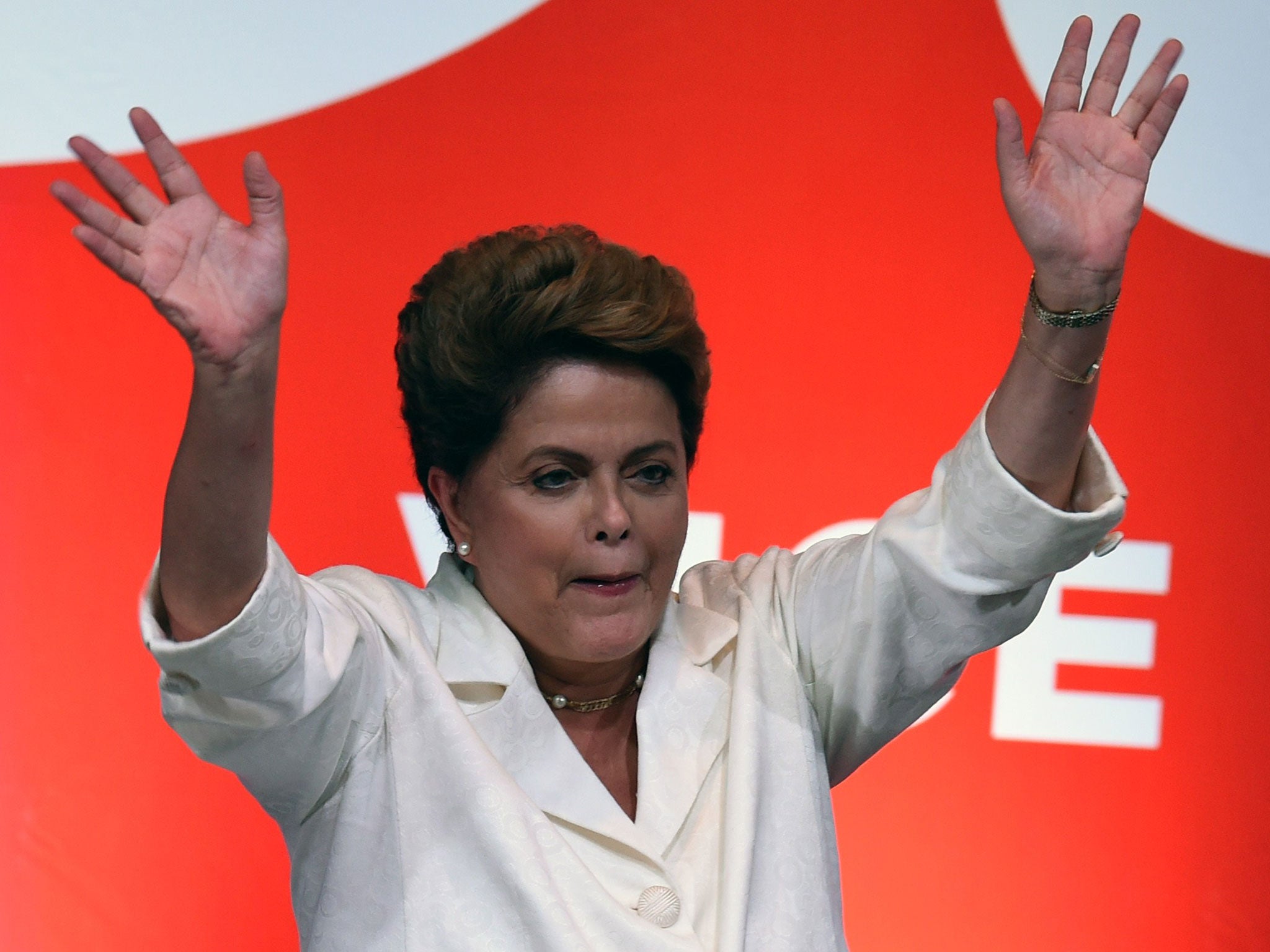Brazil's political process 'damaged by partisan press' claim journalists
The country's media ownership is concentrated in the hands of a few domestic conglomerates which dominate the market, and are owned by a wealthy elite

Brazil’s President Dilma Rousseff could soon see impeachment proceedings brought against her, as congress legislators are expected to vote on starting the process today. However, media coverage of the political turmoil is causing alarm among some leading journalists who claim the country’s democratic process is under threat from a “perniciously” partisan press.
Whatever the outcome of the indictment – which accuses Ms Rousseff of mismanaging the economy, and which could see her either being ousted, resigning or surviving – media experts argue the “persistent distortion and manipulation of the news coverage of the political crisis” by the country's mainstream media has handed an overwhelming advantage in the opinion stakes to forces aligned against the country’s first female President.
Bia Barbosa, a journalist and coordinator of the Brasilia-based National Forum for the Democratisation of Communication (FNDC) told The Independent: “The media has used the power of images and words to build a narrative designed to influence public opinion. What we are suffering, on a daily basis, is an absence of parity in the press and this is threatening our country’s fragile hold on democracy”.
Brazil’s media ownership is concentrated in the hands of a few domestic conglomerates which dominate the market, and are owned by a wealthy elite with historic allegiances to right-wing parties. These same political parties failed four times to defeat Ms Rousseff’s Workers' Party (Partido dos Trabalhadores) at the polls.
And even as the two-year investigation, known as "Car Wash"into allegations of bribery, corruption and money laundering at the country’s publicly-owned oil company Petrobras implicates politicians in all parties, the focus has predominantly been on Workers' Party members as well as the former President Luiz Inácio "Lula" da Silva. Mr da Silva denies any wrongdoing, while Ms Rousseff herself has not been implicated in the Car Wash probe.
To date, far less has been reported in the media on the 37 politicians facing charges of corruption and other serious crimes who are sitting on the 65-member impeachment commission who will votes on the President’s future. The impeachment process is expected to culminate later this month.
According to Boaventura de Sousa Santos, Professor of Sociology at Portugal’s University of Coimbra: “Brazil’s political right has hijacked the [Car Wash] investigation and along with its media accomplices, turned a legitimate judicial investigation into a [constitutional] coup attempt.”
Instead of portraying the issue in its varying shades of grey with its complicated and ethically ambiguous areas, the FNDC claims media outlets have dumbed down arguments into a simplistic narrative, polarising the population into “good guy versus bad guy” camps and “for or against-the-government” supporters.
“There are thousands of people who don’t fall into either area”, Ms Barbosa said. “They are the ones who see the bigger picture and are fighting to defend democracy and the legitimate election of a government voted in by 54 million people.”
Since the high-profile detention of former President Mr da Silva just over a month ago, which was leaked to the press turning the incident into a media circus, the FNDC has been analysing coverage of the political scandal. Rede Globo, the largest media company in Brazil with TV and radio networks, newspapers, news websites and pay TV operations, Folha de Sao Paulo newspaper and Vejo magazine have come under particular scrutiny.
“Our monitoring reveals we urgently need plurality of voices in society so that people can get a diversity of information and build their own opinions. This is our right," said Ms Barbosa.
Alex Solnik, a journalist with over three decades reporting in the Brazilian media, recently cancelled his 30-year subscription with Folha de Sao Paulo. He said a once impartial and balanced publication now “overtly politicises the news” stifling debate.
The oversimplification of the issues has provoked angry rallies with thousands taking to the streets over the past few weeks bearing banner slogans with “Nao vai ter golpe” (There will be no coup) and “Globo Golpista” (Globo coup-instigator) which accuses Globo TV of plotting to overthrow the government. The protests have included demonstrations outside Rede Globo’s headquarters across the country with assaults on its journalists and vandalism and burning of the network’s vehicles.
Anti-Globo protests have surfaced online and are reportedly causing alarm among major Rede Globo advertisers who fear the growth of the movement against the media organisation could impact on their brands and the consumption of their products.
An advertising executive is reported to have said Globo is professional but “its journalism is instigating a [boycott] movement in social networks which cannot be allowed to grow".
In a statement, Globo said: "[We] only fulfil [our] mission to inform the people...[we are] backed by the constitution and will continue to do so, calmly, and with nothing to fear".
Join our commenting forum
Join thought-provoking conversations, follow other Independent readers and see their replies
Comments